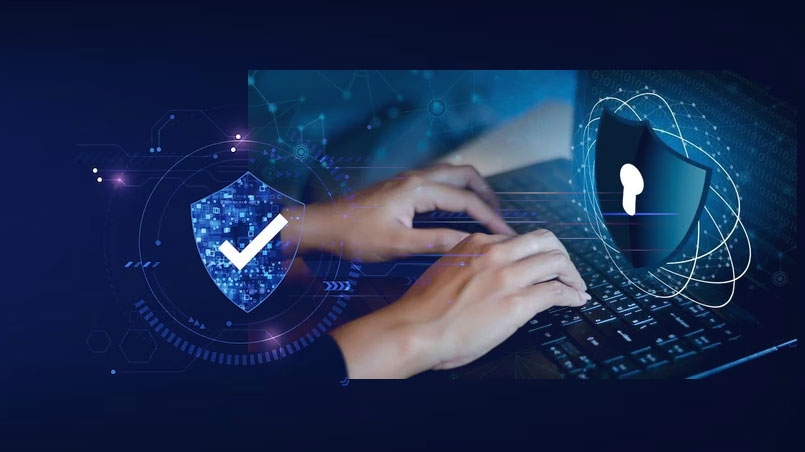 Connect with us
Connect with us

 Jun 07, 2023
Jun 07, 2023
The Indian economy is on a speedy and steady growth path; as the economy and businesses growing, security needs are also expanding, which is further necessitated by the ever-increasing security risks and related threat perceptions. The ‘Private Security Sector’ has emerged as a major industry by virtue of employment of large manpower, both skilled and unskilled, to meet the burgeoning demand of the corporate sector. Deployment of specialised personnel and systems to prevent and manage security risks and threats including accidents and incidents are vital for peaceful operations at a place. Therefore, the need for implementing security measures and systems at public places such as Airports, Railways & Metro stations, shopping malls , markets, hotels, and public utilities as well as industrial complexes, commercial spaces, offices, and residential blocks.
Indian Private Security Industry has also expanded at a Compounded Annual Growth Rate (CAGR) of around 20% over the last decade by adding new players in the field as well as scaling their operational capabilities. In fact, private security in India is the 2nd largest sector, after agriculture, in terms of employment, with close to 9 million employees. With national security assuming greater criticality and lower police to people ratio in the country, private security industry, with large manpower, can act as extended arms of law enforcement agencies. This will help relieve police forces from non-critical duties to focus on core areas.
With the anticipated growth of the industry, the employment opportunities are tremendous. Since, majority of the workforce employed is in the unorganised sector, the potential for skilling is evident. Current times require private security personnel to multitask and use technology to perform security, safety and facilitation functions. Skill development, reskilling and up-skilling are key issues before the private security sector. Therefore, investment in ‘Human Capital & Technology’ is vital in preparing this industry to take on greater responsibilities. Further, technology is progressively playing an ever-increasing role in the value-added services being offered by the industry that include ‘Artificial Intelligence (Al), Internet of Things (IoT), Hi-tech surveillance Systems, Biometric Technologies, Remote Sensors, Cyber Security’ etc.
Security market is moving towards the usage of robots with Al, which is emerging as a way for businesses to augment existing security patrols and provide greater situational awareness. Security robots can bring substantial benefits to businesses. These robots work by using multiple sensors to bring the information together. Advanced Al technologies have made it possible for robots to be able to “learn” their surroundings. Other areas of security, which are atomised to ensure better control and surveillance are door and window entry sensors, panic buttons, RFIDs, alarm gates, photoelectric beam sensors, facial recognition, people counting, drones, video surveillance to name a few. Online Visitor Management system which registers visitors with an OTP on their phone and a photo ID is another IoT implementation in security operation. A visitor is provided with a RFID badge through which the application tracks his/her movement. The application also tracks the count and location of the visitors. This is to ensure accuracy and reduce human intervention.
Automation however is not something to be feared, it should be embraced and we should adapt to work with it. No matter how advanced automation becomes it cannot replace humans because human workers will always be needed. As is always the case when technology develops and is able to perform a function as well as or better than a human being, we must adapt. Industries have and will continue to adapt, and different types of jobs will emerge. It’s important that if you feel that your job security is low because of technological advancements then you must foresee these changes and cultivate the correct skills/gain relevant qualifications so that you don’t get left behind. As I said at the beginning of this article, we should continue to invest in Human Capital, Technology and Training to ensure the Private Security Industry is well aware about the changes and be future ready.

He is President of Kapston Services, a seasoned leader with 25 years’ experience in Corporate Services, Staffing, Integrated Facilities Management, and e- Governance. He has excelled in P&L Management, Strategy, Operations, and Business Transformation for diverse sectors. He is an advocate for diversity, innovation, and sustainability, and has been recognized with numerous awards including NASSCOM recognition, Green Oscar Award, Country President Award on Diversity and Inclusion, Silver Certification on Lean Management, CEO of the Year Award, and Best Professional IKON Award. As a blog writer and speaker, he shares industry insights and is passionate about community building and youth empowerment. He advises start-ups and drives impactful initiatives for a productive workforce.
Owned by: Institute of Directors, India
Disclaimer: The opinions expressed in the articles/ stories are the personal opinions of the author. IOD/ Editor is not responsible for the accuracy, completeness, suitability, or validity of any information in those articles. The information, facts or opinions expressed in the articles/ speeches do not reflect the views of IOD/ Editor and IOD/ Editor does not assume any responsibility or liability for the same.
About Publisher

Bringing a Silent Revolution through the Boardroom
Institute of Directors (IOD) is an apex national association of Corporate Directors under the India's 'Societies Registration Act XXI of 1860'. Currently it is associated with over 30,000 senior executives from Govt, PSU and Private organizations of India and abroad.
View All BlogsMasterclass for Directors
Categories